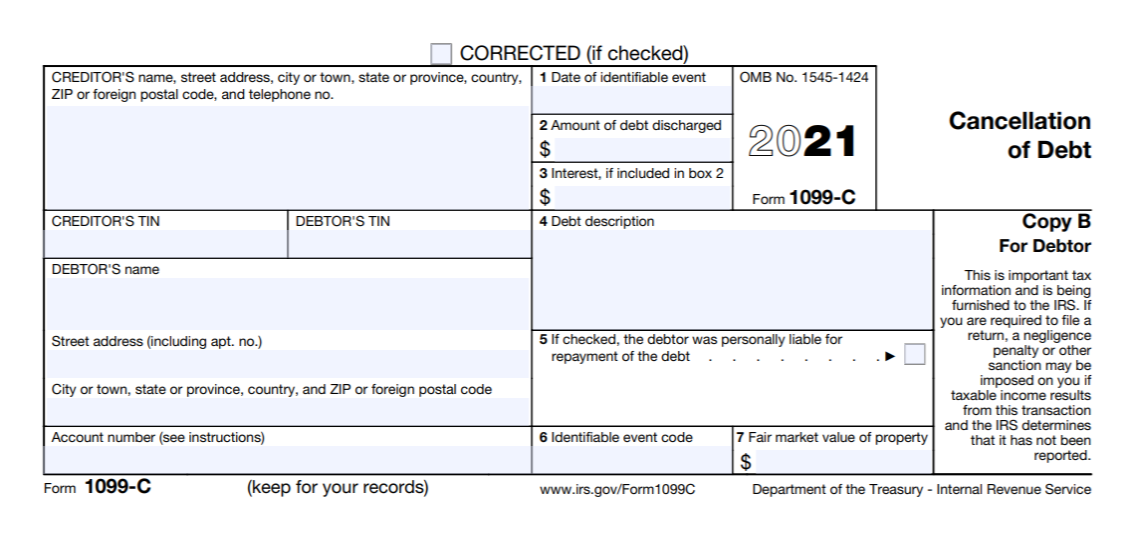If you have received a notice from the IRS, don’t panic. Yes, it can derail your plans and throw you off balance both in your personal and business life. However, in most cases, there are solutions to help make the IRS offer you a reasonable way out of the unwanted situation you have found yourself in and a good deal. This means, of course, that you will have to settle. Here are some details about the four most common notices the IRS sends, as well as ways to tackle them so you can heave a sigh of relief.
What Are IRS Notices?
They are letters the IRS sends you when they think you owe them taxes. There is a specific sequence followed when it comes to the types of letters you receive. Each one proposes interest, penalties, and taxes the Internal Revenue Service says you owe per tax period and each has its own significance.
Notice of Deficiency – What is it?
Also referred to as ticket-to-Tax Court, 90-day letter, letter 531, SNOD, CP3219A or Statutory Notice of Deficiency, the Notice of Deficiency is sent due to under-reporting income and the underpayment of tax. You usually receive it about 6 months after filing via certified mail from the IRS. Nevertheless, it may take up to 3 years after filing before you get one.
This first notice gives you significant appeal rights. If you disagree with the IRS, you have 90 days to petition to the U.S. Tax Court (after getting the Notice of Deficiency). This, automatically, gives you extra appeal rights as your case goes to the IRS Office of Appeals. Then, you might be able to skip going to Tax Court and work something out with the IRS.
Or, you could contact your local Taxpayer Advocate Service office and let them assist you in case you have received a Notice of Deficiency in error or feel that your taxpayer rights have been violated. This is also a good option if your financial situation has worsened, causing you financial hardship after getting the Notice of Deficiency or if you have tried to speak with the IRS repeatedly and have not received a response from them. However, this is where getting help from professional tax experts could make a big difference in the outcome.
What You Should Do
First of all, act quickly because you only have 90 days to do whatever needs to be done. After the 90-day deadline has passed, you won’t be getting any extensions. Remember that during this 90-day period, the IRS can NOT collect your taxes. Now, if you must appeal an IRS decision, do consider filing a petition with the Tax Court. Otherwise, the IRS will send you a bill and charge you the taxes.
Truth be told, it is quite likely for taxpayers receiving a Notice of Deficiency to miss the 90-day window or fail to make any kind of arrangements with the IRS. This always results in the IRS initiating their collection procedure through tax levies, tax liens, and other tools. For that reason, we firmly recommend contacting Innovative Tax Relief and requesting a free tax consultation for help, advice, and protection. You may even have options to reduce Notice of Deficiency-related penalties or even remove them in their entirety.
Notice of Intent – What is it?
The IRS will send you a Notice of Intent when you have not paid a balance. This type of letter informs you that the IRS will start the process to collect to satisfy your tax debt. This letter may also represent the IRS’s intent to seize your property (levy) if you don’t pay or set up a payment arrangement. Most of the time, a Notice of Intent is sent when you have missed at least three payments in a row or failed to file on time. This is why it is critical that you stay current with filling your taxes. In the opposite case, you are regarded as in default even if you have paid all of the arranged payments. Then, the IRS considers you as an agreement breaker and sends you into Collections. This means that they will garnish your wages. Whether they continue accepting your payments or not is up to them, though
When taxpayers receive a Notice of Intent, they usually panic. However, in reality, a Notice of Intent is just a heads up from the IRS that they are about to start the process to collect if you do not try to set up a payment arrangement or pay. Nevertheless, don’t take it lightly because you are heading down the path to a levy. So, it is best to take some sort of action pronto before it is too late.
Beware, though, at this point, as there are two different types of Notices, the (1) Notice of Intent to Levy and the (2) Final Notice of Intent to Levy. The second one is the last notice the IRS will send you before they seize your assets, and gives the Service the legal right to do so. This means that you have very little time before the Internal Revenue Services can levy your bank account. On some rare occasions, the IRS will only issue a Final Notice of Intent to Levy. If you find yourself in this situation, seek professional assistance immediately because a levy is about to happen.
What You Should Do
First of all, know your rights. The IRS is obliged by law to give taxpayers proper written notice before they do anything with your bank account (i.e., levy the account), per the Internal Revenue Code Section 6330. That notice should definitely include details about your right to appeal the imminent collection action within a month’s time (30 days). In the majority of cases, the Notice of Intent and the Final Notice of Intent are around 4-5 months apart, which means you have more than 4 months to prepare for the Final Notice of Intent.
Nevertheless, if you receive any of these letters, please have a tax professional handle your case. We have seen too many taxpayers disclosing information that hurt them (or not disclosing the right details). So, their attempt to manage their own case actually backfired.
Notice of Default – What is it?
A Notice of Default (aka Notice of Demand or CP523) is sent when you have been in an agreement with the IRS and has defaulted. It informs you that you have missed several payments to a creditor or lender (normally more than three in a row). You may also receive a Notice of Default if you did not file on time from that point forward when you set up the payment agreement.
When you have reached the point of defaulting payments and receiving a Notice of Default, the IRS stops accepting your payments. Even worse, they continue accepting your payment and, at the same time, send you into Collections AND garnish your wages because you broke the agreement. It should also be noted that the IRS may terminate your installment agreement without letting you know first if the Secretary (or an authorized representative) considers the collection of the due tax is in jeopardy.
What You Should Do
Respond to it within 90 days of receiving the notice so the IRS does not file a federal tax lien (or a levy) that will enable them to seize your assets. So, ensure you (or your tax professional) contact the IRS to reinstate your payment plan. It is also paramount that you make a payment before the payment deadline or termination date listed on the Notice of Default – you might be able to get your installment plan back in good standing again. You may need to provide some information about your assets, though, in this case or even be asked to fill out a new Installment Agreement (Form 433-D).
You should also contact the IRS if you believe that they have terminated your payment agreement by mistake or if you disagree with the due amount. You will find all contact details in the letter.
Notice of Garnishment – What is it?
The IRS is free to garnish your wages if you have tax debt and may even do so without getting a judgment first. It should be noted that the IRS is the only creditor that has this kind of power – all other types of creditors need a court ruling first. Plus, the sum any other regular collector takes is a fraction of what the IRS can take. Fortunately, the IRS provides several different options for you to repay your tax debt and skip the unwanted wage garnishment process.
When it comes to the max sum creditors (judgment creditors and others) can take from your wages, these are defined by federal and state laws. However, the tax code enables the IRS to take as much as it can and leave you with the necessary amount you need (per the tax code) to pay for your basic living essentials. As for the sum you can keep (protected wage), it is directly related to the number of exemptions you claim for tax purposes. For instance, a married individual filing jointly (paid monthly) that claims two exemptions can keep $1,625. A single individual claiming five exemptions (gets paid weekly) is allowed to keep slightly less than $480. the IRS garnishes anything above these sums.
What Should You Do
Since the IRS sends out several notices before garnishing your wages, once garnishment begins your options are limited. You can either pay off the tax debt, prove to the IRS that the garnishment is creating a financial hardship for you and attempt to get it reduced, or file an Offer in Compromise.
And, if you are wondering whether you could plead with your employer to get your wages back, the answer is no. Since there is a court order to garnish your salary, they won’t risk facing a penalty of law for not abiding by it. It is not up to them, and it is not their choice – just something they are obliged to do.
Also, don’t think that quitting your current job and getting a new one will save you from having your wage garnished. The court order follows you wherever you go, including your new position. Finally, disputing the Notice of Garnishment won’t get you anywhere if you truly owe the tax debt. You will only waste money and time that you could spend elsewhere (i.e., to reduce or get rid of your debt).
If You’ve Received a Notice From the IRS, We Can Help
No matter the situation you are facing, know that there are ways out and solutions to consider. Just contact the tax relief experts at Innovative Tax Relief and ask for a free consultation. Let’s find the best way out of these stressful circumstances, always with your best financial interest in mind.



